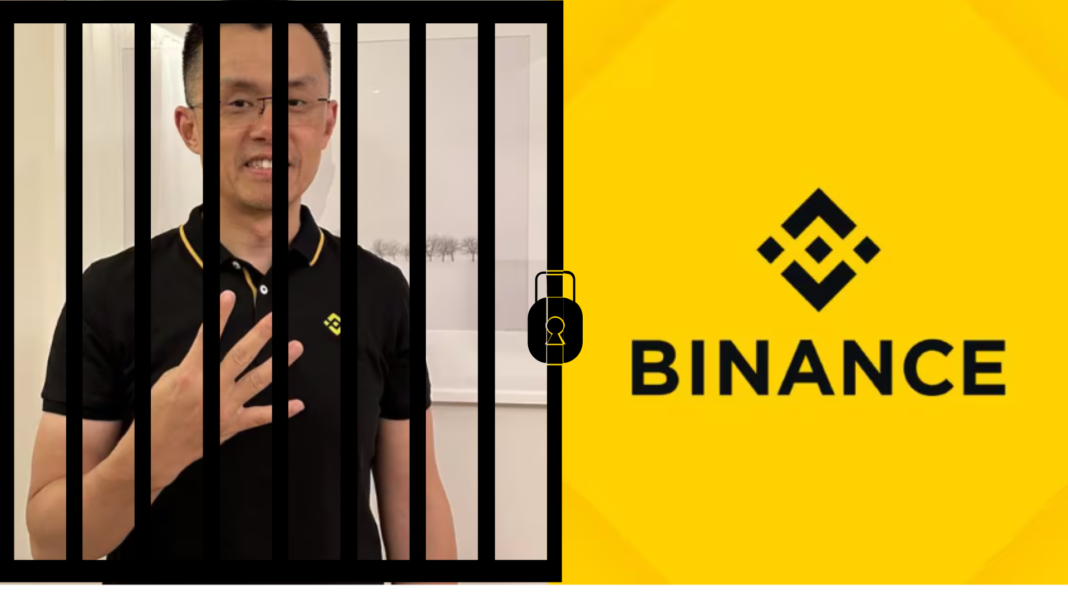In a significant move, Binance CEO Richard Teng has confirmed that Changpeng Zhao, the company’s former CEO, has been permanently banned from managing or operating Binance. This decision follows the company’s November plea agreement with the Department of Justice (DOJ). Despite this lifetime ban, Zhao, known as CZ, will retain substantial influence as Binance’s majority shareholder.
Why Does This Matter to Binance?
Regarding Zhao’s future role, the plea deal with the DOJ allowed some room for interpretation. At first, it wasn’t apparent if Zhao would be barred from “managing or operating” Binance indefinitely or temporarily.
According to Richard Teng’s confirmation to Axios, Zhao’s exclusion is permanent. Zhao is getting ready to serve out his time in prison on September 29.
Based on DOJ records, the initial reports recommended a three-year ban. But Teng’s latest declaration has confirmed the consensus that Zhao would never take on an operational position at Binance again.
Despite this, Zhao still has a lot of rights as a large stakeholder. If he thinks it’s necessary, he can still have an impact on the company’s direction by proposing fresh candidates for the board or even the CEO position.
Teng emphasized that Zhao’s role as a shareholder allows him to oversee the company’s performance. Zhao, who was previously the company’s sole board member, will now see a more diverse board, with seven members following the plea deal.
Zhao’s Involvement Still Raises Questions
Concerns around Zhao’s extent of engagement are still growing. Zhao appears to have kept up good contacts with important insiders of the company, such as executive Tigran Gambaryan and co-founder Yi He. This support system and the outside monitors assigned as part of the plea agreement will probably keep a careful eye on Zhao’s impact.
Yesha Yadav, a law professor at Vanderbilt University, emphasised the critical importance of these monitors, who would keep an eye on Binance’s adherence to the plea deal for the next three to five years. Their presence is intended to prevent Zhao from unintentionally transitioning from a shareholder status into a management function.
A Ban was Not the Only Option
Zhao’s permanent prohibition from CEO roles is not expressly required under the DOJ’s settlement with Binance. Daniel Richman, a former federal prosecutor, brought attention to the fact that the restriction was described as a “consideration” rather than a mandatory necessity. This gives Zhao some leeway if he wants to try to take on a leadership position again.
Zhao is “prohibited from any present or future involvement in operating or managing the business,” according to Binance, but the DOJ has not yet commented on this assertion.
Does Zhao Plan to Return?
Zhao has made it known that he does not plan to re-enter Binance’s management ranks but instead will concentrate on making investments in blockchain, artificial intelligence, and biotech. His April court letter revealed a departure from his prior position.
However, with U.S. regulators continuing to closely monitor Binance, the next years will be crucial in assessing the extent of Zhao’s influence over the company. There has been a lot of controversy about reports that Zhao will be released early in August. On the other hand, his release date is September 29 according to US Bureau of Prisons data.
Also read
Binance Employee Detained In Nigeria, Denied Medical Facilities


